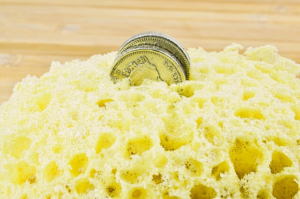Simplifying Yard Waste Removal & Recycling for Eco-Conscious Homes
Yard Waste Removal and Recycling, focusing on proper classification of organic materials like grass clippings and leaves, prevents pollution in landfills where they produce methane. Composting these organic byproducts improves soil health, while…….

Yard Waste Removal and Recycling, focusing on proper classification of organic materials like grass clippings and leaves, prevents pollution in landfills where they produce methane. Composting these organic byproducts improves soil health, while recycling non-biodegradables reduces waste sent to landfills, contributing to a greener environment. These eco-friendly practices also offer economic benefits including cost savings for residents and municipalities, making them crucial components of sustainable living.
“Simplifying residential yard waste disposal is not just about aesthetics; it’s an eco-conscious step towards a greener future. This article guides you through the process of understanding, managing, and recycling yard waste effectively. From identifying what belongs in your compost pile to adopting sustainable removal strategies, we offer efficient solutions tailored for modern homes. Discover the environmental benefits of these practices and learn how easy it is to contribute to a cleaner, more eco-friendly neighborhood. Let’s embark on this journey towards responsible Yard Waste Removal and Recycling.”
- Understanding Yard Waste: What Needs Disposal and Recycling?
- Efficient Strategies for Simple and Sustainable Yard Waste Removal
- Benefits of Implementing Eco-Friendly Practices for Yard Waste Management
Understanding Yard Waste: What Needs Disposal and Recycling?

Yard waste, a term that encompasses a variety of organic materials, requires efficient removal and responsible recycling to maintain a healthy environment. This includes common items such as grass clippings, leaves, branches, and garden trimmings—byproducts of regular yard maintenance activities. Understanding what constitutes yard waste is the first step towards effective disposal and recycling practices.
Proper classification ensures that these organic materials do not end up in landfills, where they can contribute to methane emissions and environmental degradation. Instead, they can be transformed into valuable resources through composting or recycled into new products, reducing the strain on natural resources and promoting a more sustainable lifestyle. With simple yard waste removal and recycling techniques, residents can actively participate in eco-friendly practices while keeping their surroundings clean and tidy.
Efficient Strategies for Simple and Sustainable Yard Waste Removal

In today’s digital era, many homeowners are seeking efficient strategies for simple and sustainable yard waste removal. Implementing a robust recycling program is not only an eco-friendly choice but also a practical one. Start by sorting your yard waste into organic materials like leaves, grass clippings, and food scraps, which can be composted, and non-biodegradable items such as plastic, metal, and glass. Composting not only reduces the amount of waste sent to landfills but also enriches soil, promoting healthier plants in your garden.
For effective yard waste removal, consider adopting a weekly or bi-weekly collection schedule. Many local municipalities offer dedicated services for this purpose, making it convenient for residents to contribute to a cleaner environment. Additionally, explore community recycling programs that accept yard waste and other recyclables. By combining these strategies, you can significantly minimize your environmental footprint while ensuring a tidy and sustainable yard.
Benefits of Implementing Eco-Friendly Practices for Yard Waste Management

Implementing eco-friendly practices for yard waste management offers numerous benefits, both for the environment and for residents. By adopting sustainable methods such as composting and recycling, communities can significantly reduce their carbon footprint. Yard waste removal and recycling programs play a crucial role in diverting organic materials from landfills, where they would otherwise decompose and release greenhouse gases like methane. This process not only helps combat climate change but also fosters a healthier ecosystem by enriching soil with nutrient-rich compost, promoting biodiversity, and reducing water pollution.
Additionally, eco-friendly yard waste management practices can lead to cost savings for residents and municipalities. Composting, for instance, turns organic refuse into valuable fertilizer, eliminating the need for expensive commercial fertilizers. Moreover, recycling programs reduce the amount of material that needs to be collected and transported, thereby lowering collection costs. These benefits create a win-win situation, promoting environmental sustainability while offering economic advantages for all involved parties.
Implementing eco-friendly practices for yard waste management not only simplifies disposal but also offers significant benefits to both your local environment and community. By understanding what constitutes yard waste and adopting efficient strategies, you contribute to a greener, more sustainable future. Remember, every action counts – even small changes in how we handle our yard waste can make a big difference. Embrace these practices and enjoy the satisfaction of knowing you’re doing your part for a cleaner, healthier environment.







